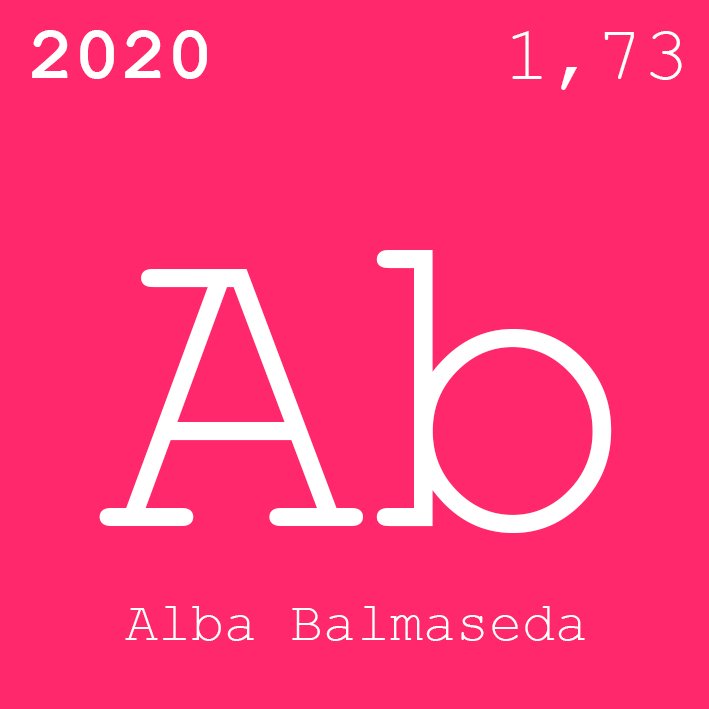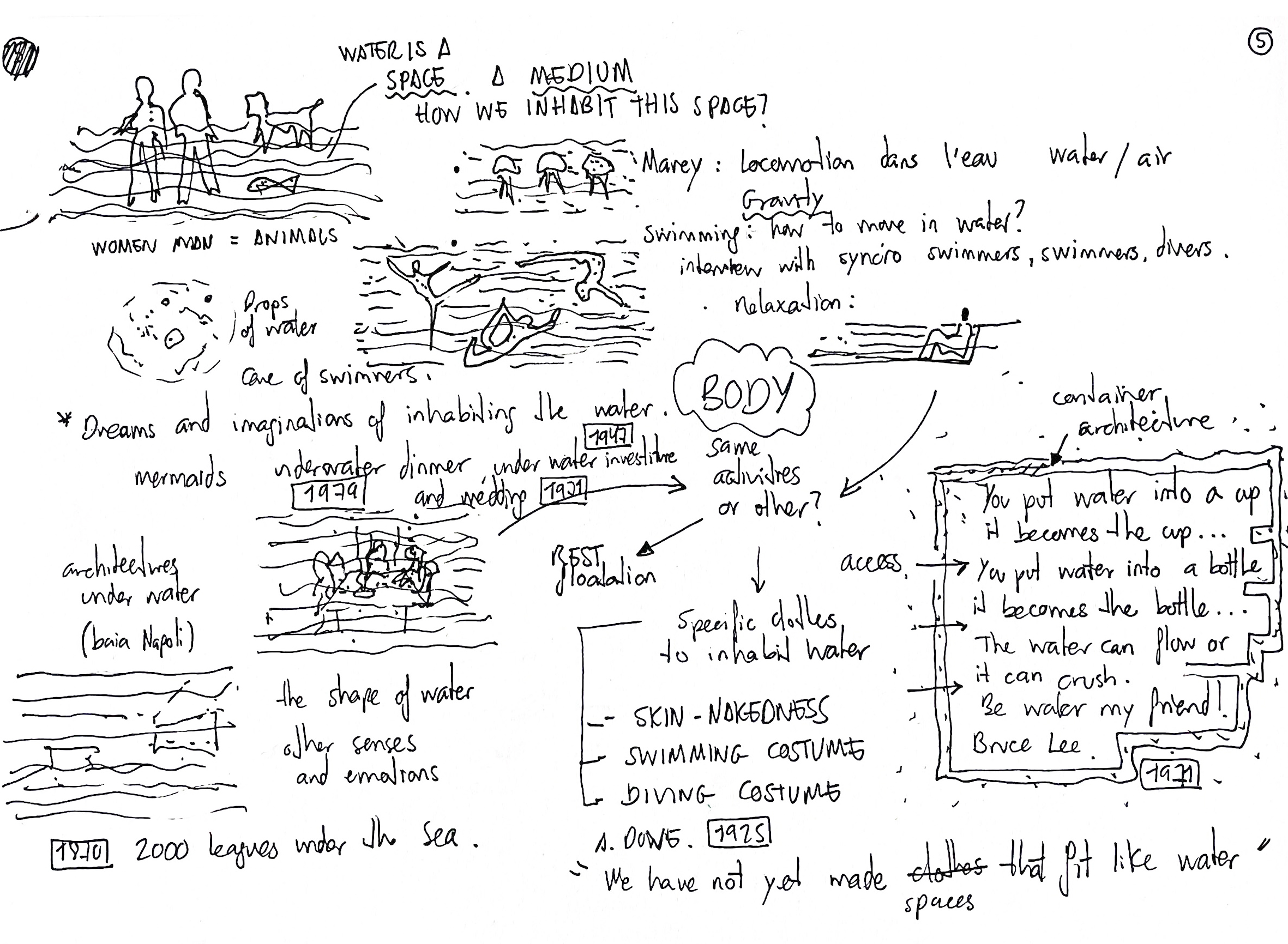
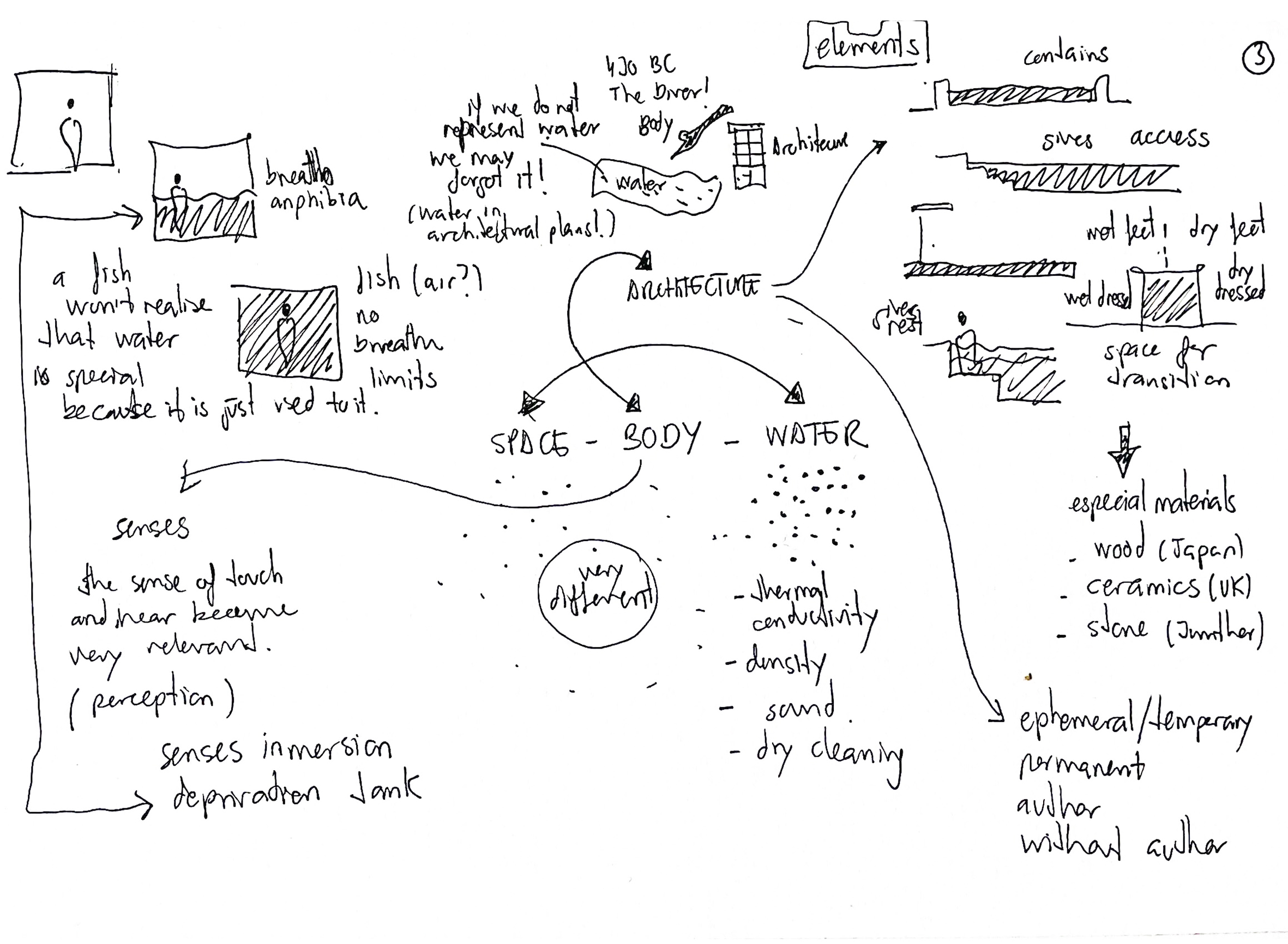
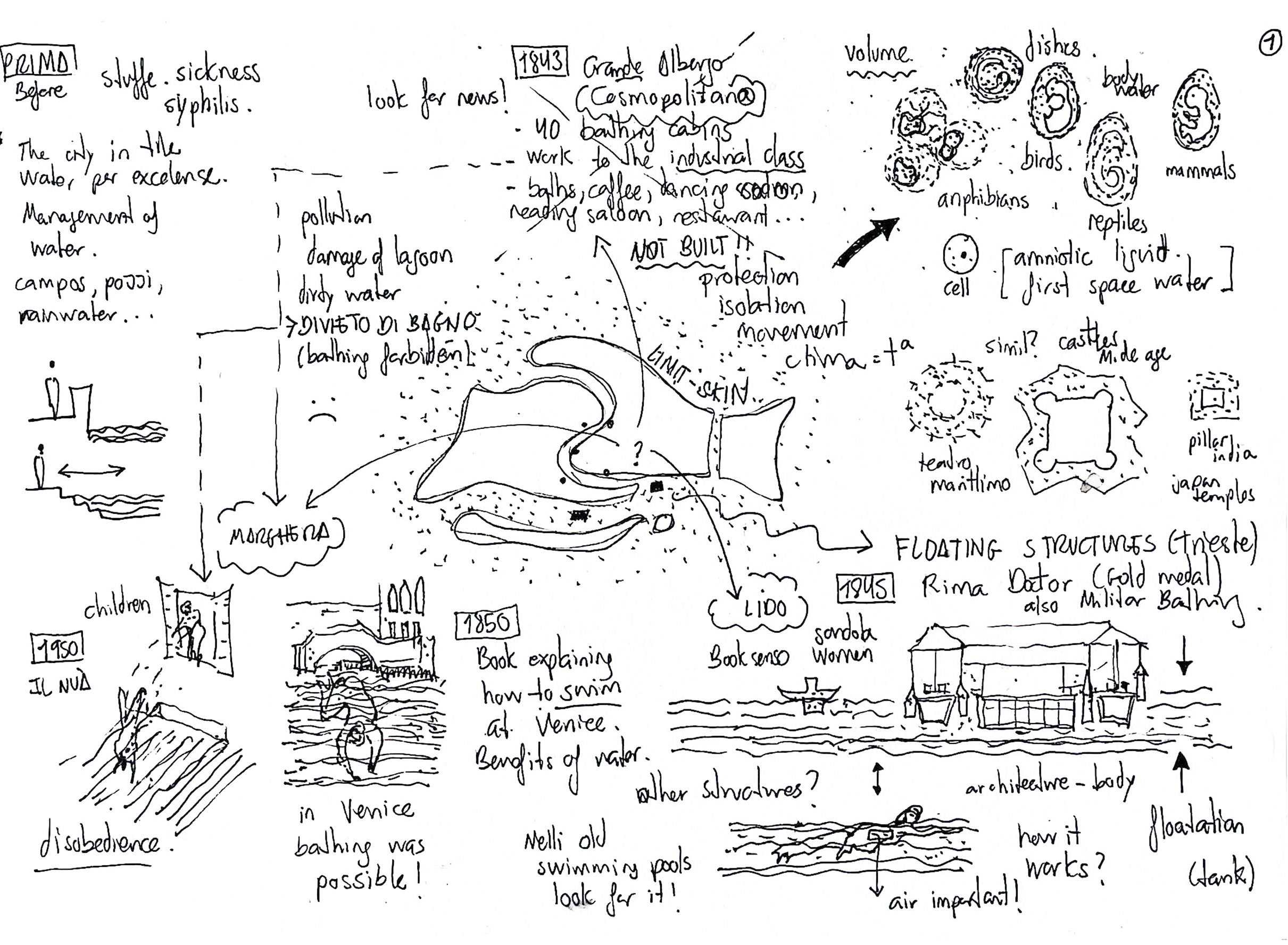
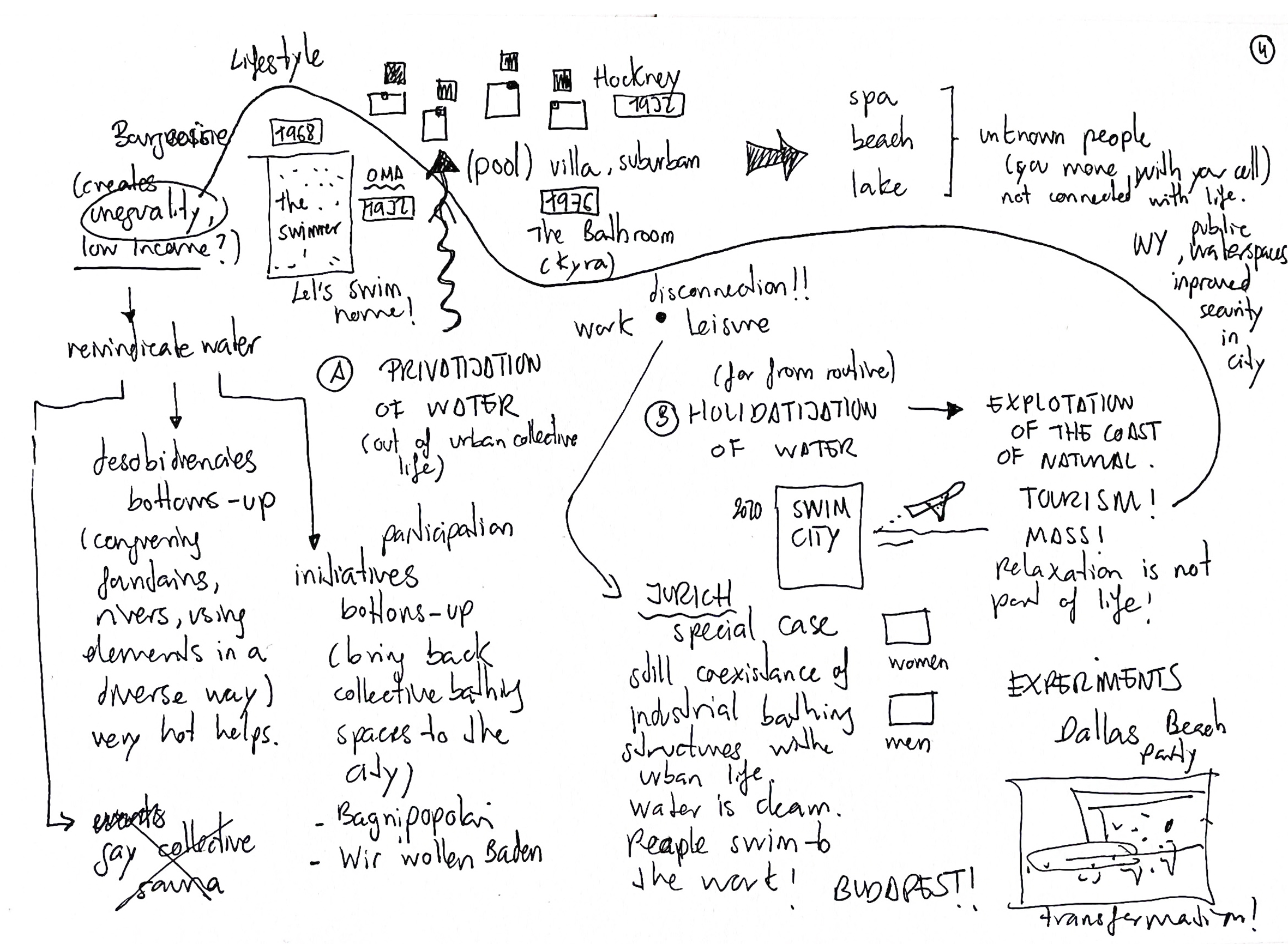
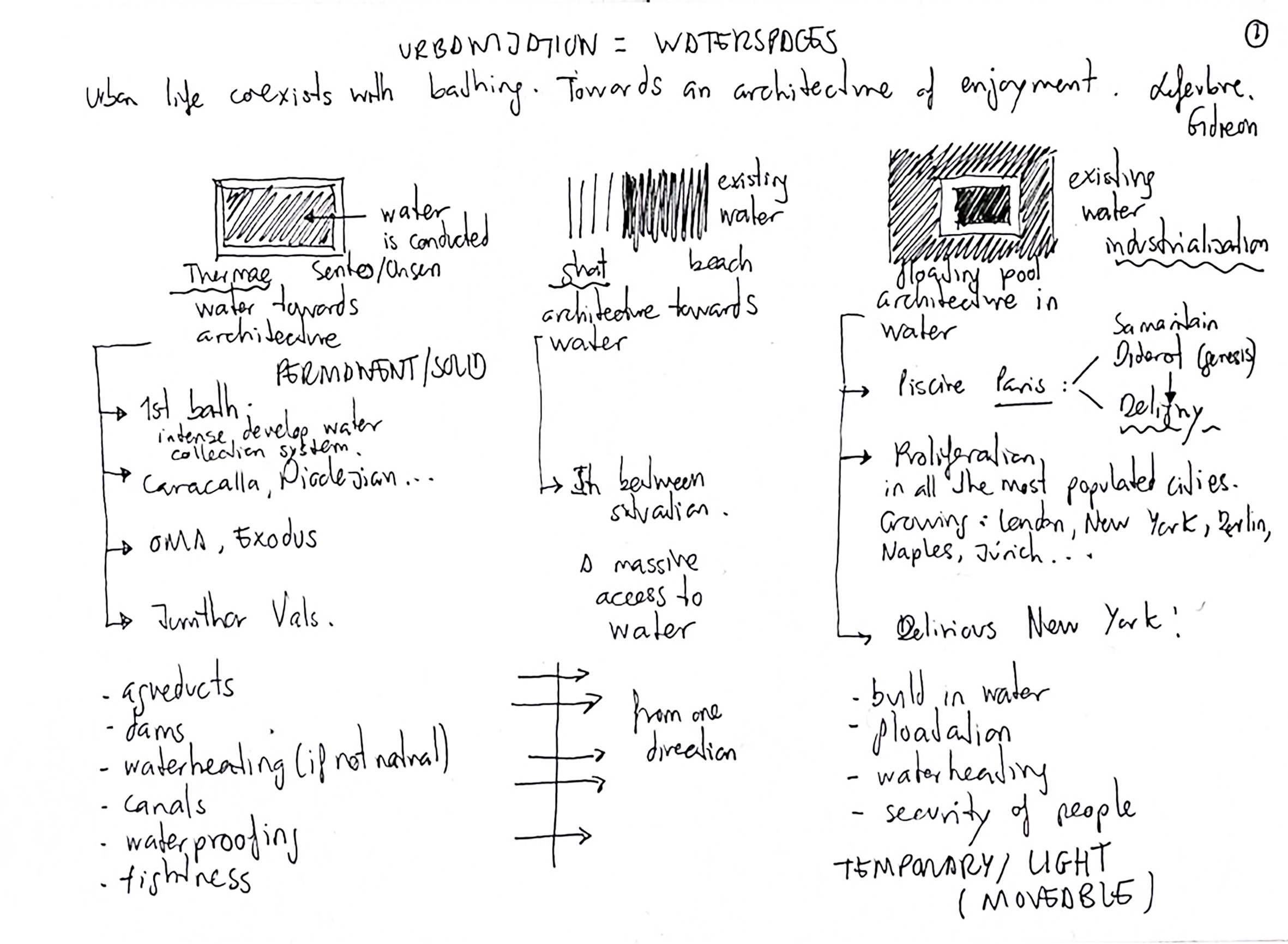
Ph.D.
Cities, bodies, and water
Urban Bathing as a Spatial Practice
Urban bathing as a spatial practice is emerging to reclaim for public use Bathing Spaces, Natural Waterways, Canals, Public Fountains, and Absent Waters in Western cities deprived of public spaces for taking the waters.
Many use architectural and urban design tools to give citizens access to water for bathing. In a context of global warming, de-corporealization and individualism, the thesis will study how these places can become climatic, healing and social shelters in the urban landscape, and open to all.
Furthermore, this study explores how these spatial practices implement sustainable ways of understanding urban waters, even questioning and reinventing filtration systems, addressing the issue of water quantity and quality, considering coexistence with other living beings, and implementing tests in the design process for minimal intervention.
Urban bathing in public space finally suggests a new relationship between the body and the city, transforming the character of water from a utilitarian infrastructure to a space for embodiment.
All indicate the need for future detailed research to shape and understand the role of urban bathing in the contemporary, increasingly urbanized society.
Author
Alba Balmaseda
Supervisors
Prof. Michele Beccu
Prof. Giovanni Longobardi
Prof. Roger Connah
Dottorato di Ricerca in Architettura: Innovazione e Patrimonio (Dipartimento di Architettura)
Università degli Studi Roma Tre
Author
Supervisors
Prof. Michele BeccuProf. Giovanni Longobardi
Prof. Roger Connah
